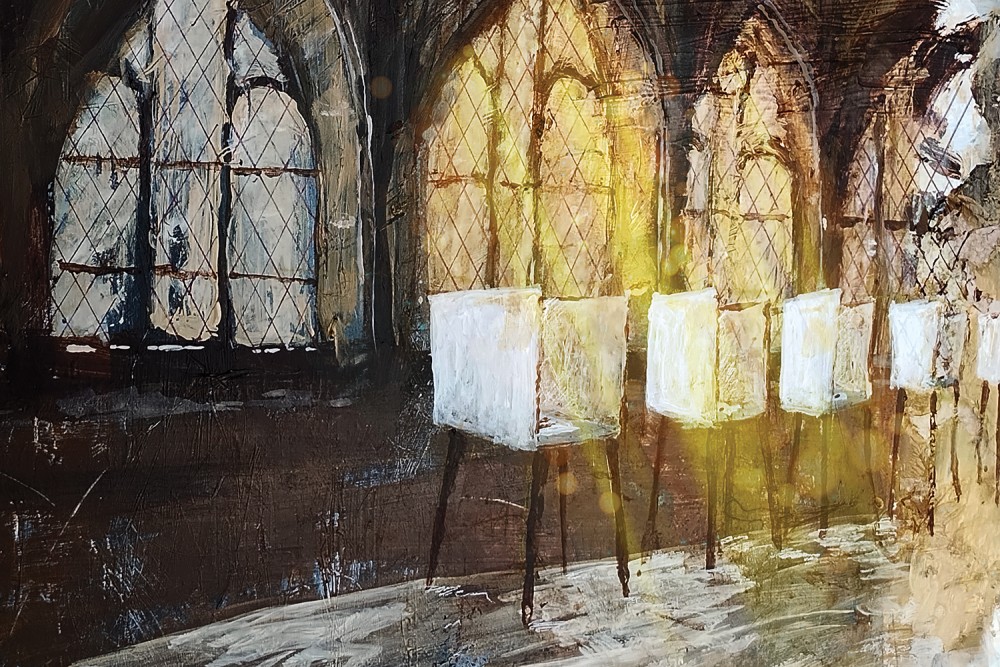Wisdom from Augustine in an election year
Our so-called Christian politics have been captivated by the liturgies of the earthly city rather than the city of God.

(Illustration by Scott Shellhamer)
I am an immigrant to this country. I moved here with my young family almost 30 years ago. In 2018 we finally became citizens of the United States. As a younger man, in particular as a young academic, I couldn’t have imagined this. For a long time I was an earnest player in what Richard Rorty called the “America Sucks Sweepstakes.” Some of my theological inclinations led me to be suspicious of the state (and of these United States in particular). Yet my journey led me to become invested as a member of this flawed but noble project that we call the American experiment, which welcomed me and enabled me to forge a meaningful life.
And so we chose to become citizens. Our naturalization ceremony at the Gerald R. Ford Presidential Library was beautiful and moving, with scores of new citizens from 27 different countries, many of whom endured much more arduous journeys than we did. The presiding judge’s speech was a soaring, inspiring invocation of the better angels of the republic. As we left the auditorium, the secretary of state provided an opportunity for every one of us to register to vote. We voted in our first presidential election in 2020.
Perhaps that’s why, watching the events of January 6, 2021, unfold live on television, I was rattled and shook in ways that surprised me. The institutions and practices I had just signed up for seemed to be eroding and under threat—those hallmarks of liberal democracy that include the separation of powers, the rule of law, the constitutional protection of rights, and a representative voice of the people. I felt like Tony Soprano: “It’s good to be in something from the ground floor,” Tony once said. “But I came too late for that. . . . I came in at the end. The best is over.”





